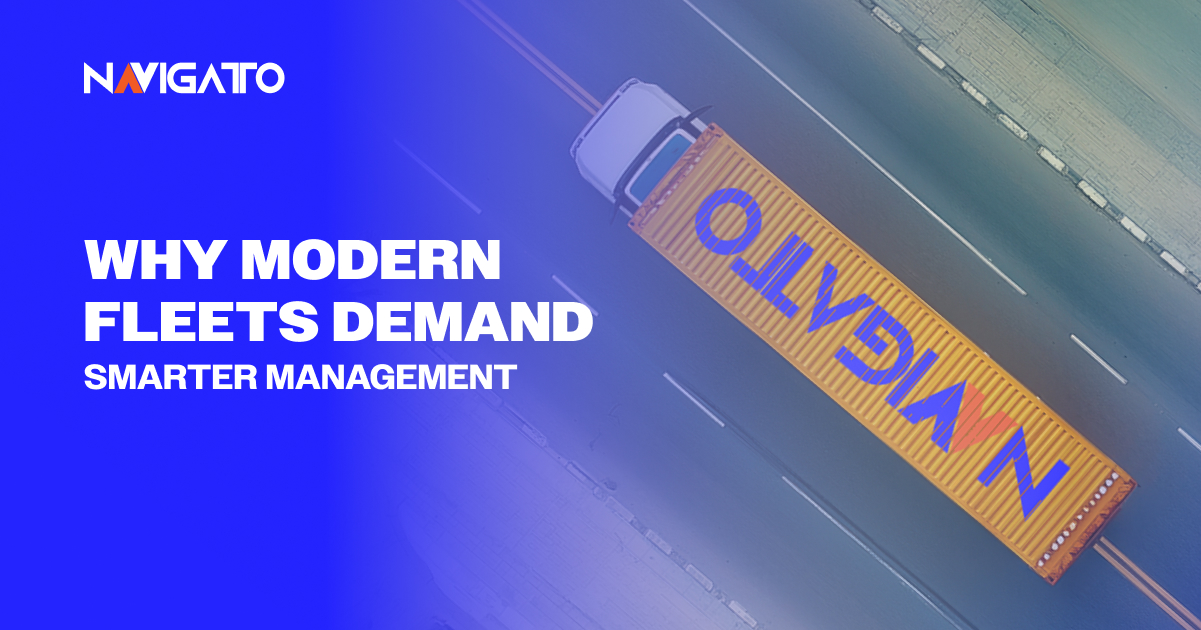
Why Modern Fleets Demand Smarter Management
Fleet operations have undergone a remarkable transformation over the past decade, evolving from paper-based tracking systems to sophisticated, AI-powered management platforms. This shift isn’t merely about keeping up with technology—it’s about survival in an increasingly competitive landscape where operational efficiency directly impacts your bottom line.
Today’s fleet managers face unprecedented challenges: rising fuel costs, stringent compliance requirements, and growing customer expectations for real-time visibility. Meanwhile, equipment theft costs British businesses millions annually, whilst inefficient asset utilisation drains resources across industries from healthcare to construction. The solution lies in embracing smart fleet management technologies that provide actionable intelligence, not just data.
The Digital Revolution in Fleet Operations
The transition from manual fleet management to intelligent systems represents one of the most significant operational shifts in modern business. Traditional methods—clipboards, logbooks, and periodic phone check-ins—simply cannot compete with real-time GPS tracking and IoT-enabled asset monitoring.
GPS tracking has fundamentally transformed supply chain visibility, enabling businesses to monitor assets across multiple locations simultaneously. According to Fortune Business Insights, the smart fleet management market is projected to reach significant growth, driven by increasing demand for operational transparency and cost reduction.
Key Benefits of Digital Fleet Management:
- Real-time location tracking across entire fleets
- Automated route optimisation reducing fuel consumption
- Predictive maintenance alerts preventing costly breakdowns
- Enhanced security through geofencing and theft prevention
- Comprehensive reporting for compliance and performance analysis
IoT tracking solutions have created connected vehicle ecosystems where every asset communicates its status, location, and operational health. This connectivity extends beyond vehicles to include equipment, tools, and even personnel, creating a comprehensive operational picture that was impossible just a few years ago.
Critical Challenges Facing Fleet Operators
Modern fleet operators contend with a complex web of operational challenges that traditional management methods cannot adequately address. Rising operational costs continue to squeeze profit margins, with fuel price volatility creating budget uncertainty that affects everything from route planning to service pricing.
Primary Operational Challenges:
- Fuel costs representing 30-40% of total operational expenses
- Equipment theft losses exceeding £1 billion annually in the UK
- Driver shortages affecting 76% of fleet operators
- Increasing compliance requirements across multiple jurisdictions
- Customer demands for real-time delivery tracking and updates
Equipment theft particularly impacts construction and industrial sectors, where high-value machinery often operates in remote locations with limited security. GPS monitoring systems have proven effective in reducing these losses, with some operators reporting theft reductions of up to 80% following implementation.
The driver shortage crisis compounds these challenges, making it essential to maximise productivity from existing personnel. Smart fleet management systems help by optimising routes, reducing unnecessary journeys, and providing drivers with real-time traffic and weather information to improve efficiency.
The Hidden Costs of Inefficient Fleet Management
Many fleet operators focus on obvious costs—fuel, maintenance, insurance—whilst overlooking hidden expenses that can significantly impact profitability. Idle time represents one of the largest hidden costs, with vehicles consuming fuel and depreciating whilst generating no revenue.
“Inefficient fleet management costs businesses an average of 15-20% of their total operational budget through hidden expenses like unauthorised vehicle use, excessive idle time, and suboptimal routing.” – GPS Technologies Research
Hidden Cost Categories:
- Vehicle idle time consuming fuel without productivity
- Unauthorised personal use of company vehicles
- Inefficient routing increasing mileage and delivery times
- Delayed maintenance leading to costly emergency repairs
- Lost productivity from equipment search and retrieval time
In healthcare settings, staff can spend up to 30 minutes per shift searching for essential equipment, representing significant labour cost wastage. Manufacturing facilities experience similar inefficiencies when tools and equipment aren’t properly tracked and managed.
Core Technologies Powering Smart Fleet Management
Understanding the technology stack behind modern fleet management helps operators make informed decisions about system selection and implementation. GPS tracking forms the foundation, providing precise location data that enables all other smart fleet functions.
Essential Technology Components:
- GPS tracking devices with satellite and cellular connectivity
- IoT sensors monitoring engine health, fuel levels, and usage patterns
- RFID tracking for indoor asset management and inventory control
- AI-powered analytics for predictive maintenance and route optimisation
- Cloud-based platforms enabling remote access and data integration
Asset tracker technology has evolved beyond simple location reporting to include comprehensive operational monitoring. Modern trackers measure everything from engine hours and fuel consumption to driver behaviour and environmental conditions, providing a complete operational picture.
Real-time location systems now offer accuracy within metres, enabling precise tracking even in challenging environments. Indoor positioning technologies complement GPS tracking, ensuring complete asset visibility regardless of location.
AI Integration in Fleet Management:
- Predictive maintenance algorithms identifying potential failures
- Route optimisation considering traffic, weather, and delivery windows
- Driver behaviour analysis improving safety and efficiency
- Demand forecasting for better resource allocation
Industry-Specific Applications and Benefits
Healthcare Sector Transformation
Healthcare facilities have embraced GPS and RFID tracking to address critical challenges in equipment management and patient care efficiency. Hospital asset management systems using GPS implementation have reduced equipment search times by up to 75%, directly improving patient care delivery.
Medical equipment GPS tracking ensures critical devices like wheelchairs, infusion pumps, and portable diagnostic equipment remain available when needed. This visibility prevents costly equipment purchases due to perceived shortages when items are simply misplaced or incorrectly allocated.
Healthcare Implementation Benefits:
- Reduced equipment replacement costs through improved utilisation tracking
- Faster emergency response with instantly locatable critical equipment
- Enhanced patient satisfaction through shorter wait times
- Improved compliance with equipment maintenance schedules
Manufacturing and Industrial Applications
Factory equipment tracking systems enable manufacturers to optimise production efficiency through comprehensive asset monitoring. Manufacturing asset monitoring provides real-time insights into machinery utilisation, identifying bottlenecks and optimisation opportunities.
Industrial IoT tracking connects production equipment, creating data streams that inform predictive maintenance strategies. This proactive approach can reduce unplanned downtime by up to 50%, significantly impacting production capacity and profitability.
Construction and Heavy Industry Solutions
Construction equipment GPS tracking addresses unique challenges in this sector, including equipment theft, multi-site coordination, and utilisation optimisation. Heavy machinery tracking systems provide crucial data for project planning and resource allocation across multiple sites.
Jobsite equipment management extends beyond location tracking to include operational monitoring, ensuring machinery operates within safe parameters and receives timely maintenance. This comprehensive approach reduces both operational costs and safety risks.
Construction Sector Advantages:
- Theft prevention through real-time location alerts and geofencing
- Optimised equipment allocation across multiple project sites
- Maintenance scheduling based on actual usage rather than time intervals
- Improved project planning with accurate equipment availability data
Selecting the Right Fleet Management Solution
Choosing an appropriate fleet management system requires careful consideration of operational requirements, scalability needs, and integration capabilities. The most expensive system isn’t necessarily the best fit for your specific operational context.
Essential Selection Criteria:
- Real-time tracking accuracy and update frequency
- Scalability to accommodate business growth
- Integration capabilities with existing systems
- Indoor-outdoor tracking for comprehensive coverage
- User interface design and ease of adoption
- Support and training resources
ROI calculation should consider both direct cost savings and operational improvements. Direct savings include reduced fuel consumption, lower insurance premiums, and decreased theft losses. Operational improvements—enhanced customer service, improved compliance, better resource utilisation—often provide greater long-term value.
“Businesses implementing comprehensive fleet management systems typically see ROI within 12-18 months, with ongoing savings of 15-25% in operational costs.” – Grand View Research
Implementation Best Practices
Successful fleet management system implementation requires careful planning and change management. A phased rollout approach minimises operational disruption whilst allowing teams to adapt gradually to new processes and technologies.
Implementation Strategy:
- Pilot programme with a subset of vehicles or equipment
- Staff training and system familiarisation
- Gradual expansion across the full fleet
- Performance monitoring and system optimisation
- Regular review and improvement processes
Driver and staff training programmes are crucial for adoption success. Resistance to new technology often stems from uncertainty about system benefits and concerns about surveillance. Clear communication about system benefits and privacy considerations helps ensure positive adoption.
Data privacy and security considerations are paramount, particularly in healthcare and sensitive industrial applications. Choose systems that comply with relevant data protection regulations and provide appropriate access controls and audit trails.
Future-Proofing Your Fleet Operations
Emerging technologies continue to reshape fleet management possibilities. AI-powered route optimisation now considers dozens of variables—traffic patterns, weather conditions, delivery windows, vehicle capacity—to create optimal routing solutions that human dispatchers couldn’t achieve manually.
Environmental sustainability has become a critical consideration, with smart fleet management enabling significant carbon footprint reductions through route optimisation, idle time reduction, and maintenance efficiency. These environmental benefits often align with cost savings, creating win-win scenarios for business and environmental objectives.
Future Technology Trends:
- Autonomous vehicle integration and fleet coordination
- Advanced telematics combining multiple data sources
- Machine learning algorithms for predictive analytics
- Enhanced indoor positioning and augmented reality interfaces
- Integrated supply chain visibility platforms
Autonomous vehicle integration represents the next major evolution in fleet management. Whilst fully autonomous commercial vehicles remain several years away, semi-autonomous features—lane keeping, automatic braking, adaptive cruise control—are already improving safety and efficiency.
Making the Business Case for Smart Fleet Management
Quantifying the business case for smart fleet management requires comprehensive analysis of both costs and benefits. Direct cost savings are often easier to measure and include reduced fuel consumption, lower insurance premiums, decreased maintenance costs, and reduced theft losses.
| Cost Category | Typical Savings | Measurement Method |
|---|---|---|
| Fuel Consumption | 10-20% | Before/after fuel usage comparison |
| Maintenance Costs | 15-25% | Reduced emergency repairs and optimised scheduling |
| Insurance Premiums | 5-15% | Risk reduction discounts from insurers |
| Administrative Costs | 20-30% | Automated reporting and reduced manual tracking |
Competitive advantages often provide greater long-term value than direct cost savings. Enhanced customer service through real-time delivery tracking, improved reliability through predictive maintenance, and better resource allocation all contribute to market positioning and customer retention.
Risk mitigation benefits include reduced accident rates, improved compliance with safety regulations, and better protection against equipment theft. These benefits often translate directly into insurance savings and reduced liability exposure.
Long-term Strategic Value:
- Enhanced operational visibility enabling better decision-making
- Improved customer satisfaction through reliable service delivery
- Scalable systems supporting business growth
- Data-driven insights identifying new operational opportunities
- Competitive advantage through operational efficiency
The smart fleet management revolution isn’t coming—it’s already here. Businesses that embrace these technologies now position themselves for sustained competitive advantage, whilst those that delay risk falling behind in an increasingly efficiency-driven marketplace. The question isn’t whether to implement smart fleet management, but how quickly you can realise its benefits for your operation.
Frequently Asked Questions
How much does a GPS tracking system cost for fleet management?
What are the main benefits of real-time GPS asset tracking?
Which GPS tracking system is best for healthcare facilities?
How do you prevent equipment theft with GPS monitoring?
What problems can occur with vehicle tracking systems?
Categories
- Data & Analytics
- Driver Performance & Coaching
- Fleet Efficiency & KPIs
- Fuel & Idling Optimization
- Geo-Intelligence & Zones
- Industry Case Studies
- Maintenance & Uptime
- Product Features & Updates
- Product Features & Updates
- Product Features & Updates
- ROI & Business Value
- Routing & Last-Mile
- Safety & Compliance
- Strategy & Playbooks

